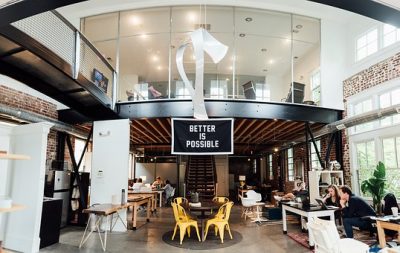There have been numerous studies, guides, TedTalks and memes into the who, what, how and why’s of millennial workers. With Deloitte predicting that millennials will make up 75% of the global workforce by 2025 we look at some of the insight.
Millennial
A Millennial is typically referred to as someone who will reach young adulthood in the early 21st century, those born between 1980 and 1999. A generation for which many will have only known the world to be connected by the internet, most of those never having to suffer dial up broadband!
Expectations and outlook
Many surveys suggest that Millennials are more likely to be motivated by a good work life balance and a sense of purpose. The notion of a job for life being worn away by technology and industry changes. The image of a traditional corporate environment being challenged by tech start-ups, flexible working. So how much are organisations shifting and adjusting to better fit the needs of millennials.
Airbnb
Nathan Blecharczyk, co-founder of room sharing website Airbnb, which has over 2,000 employees, says in the technology arena in which they operate the competition for staff is very intense.
In a bid to attract more millennials he says the firm makes it very clear what, its core values are to help make it stand out to would be employees.
“Millennials are known to be more purpose-driven, so as a company both internally and externally we’re always communicating what our values are and trying to be true to those things,” he says.
Accordingly, the firm has weekly Friday meetings in each of its offices, then an all company meeting every fortnight that is streamed live to its 20 offices around the world where it talks about the most important things to the company.
On top of this, it holds an annual three-day meeting in San Francisco where all employees are flown in so everyone can meet and communicate face-to-face.
He says the firm has also worked on creating a relaxed office environment where staff feel as comfortable there as they do at home.
“We’re constantly trying to remind our employees of what business we are in, in creating an environment where they can be totally comfortable and where they actually want to hang out after work,” he says.
Hootsuite:
Ryan Holmes, the founder of Hootsuite, which provides social media management tools, has also worked hard to avoid the traditional hierarchies of larger firms.
Rather than having a layer of management which dictates to their team below, the firm has instead tried to give individual teams more power.
It’s also created a so called “guru track” to enable those in the company who don’t want to become traditional leaders still achieve some kind of recognition.
Instead of trying to ram a round peg into a square hole, “[It’s about] how can we help this person progress through their career as an amazing engineer, instead of the only track is to become a leader or a manager”.
For companies adapting the way they work to millennials’ strengths, is a direction which CEO coach Steve Tappin believes will be effective.
“If CEOs try and over control in the old way then millennials will walk but if you can harness their ideas, passion and energy then that’s going to power the future success of the company,” he says.
This feature first appeared on the BBC Website and is based on interviews by CEO coach and author Steve Tappin for the BBC’s CEO Guru series, produced by Neil Koenig.







